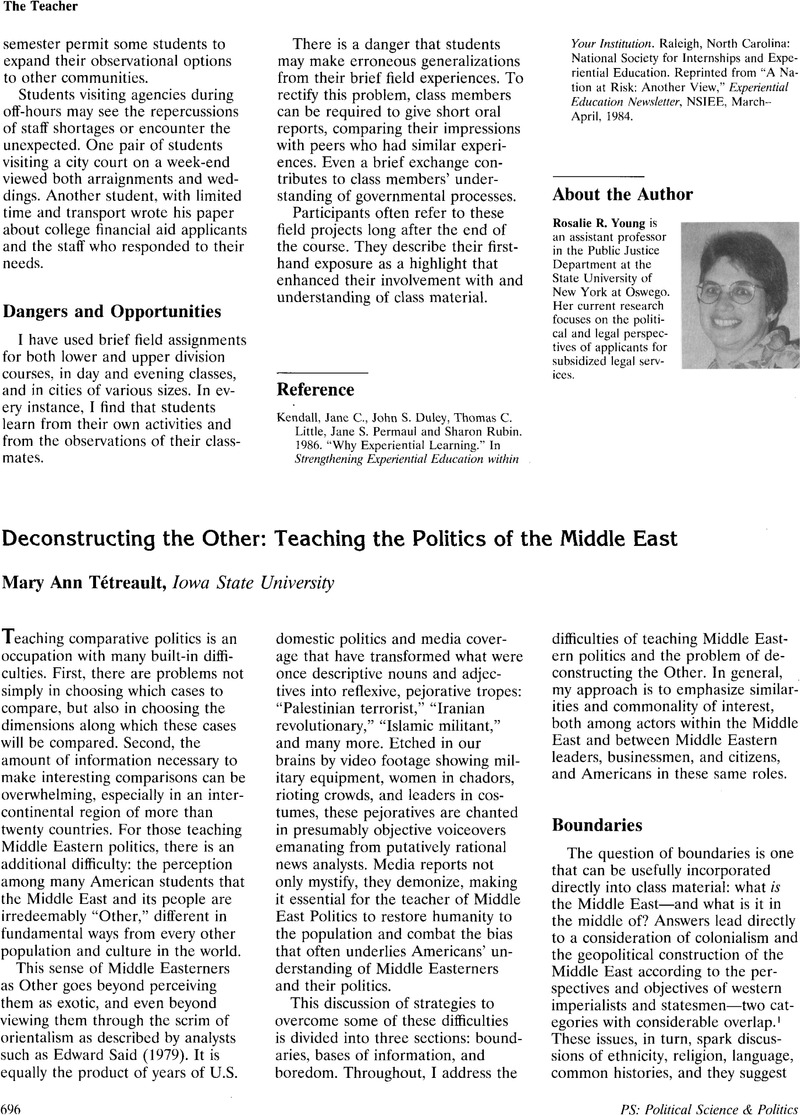Crossref Citations
This article has been cited by the following publications. This list is generated based on data provided by Crossref.
Kazemzadeh, Masoud
1998.
Teaching the Politics of Islamic Fundamentalism.
PS: Political Science & Politics,
Vol. 31,
Issue. 01,
p.
52.
Çavdar, Gamze
Yasar, Yavuz
and
Fisk, Jonathan
2019.
Student Biases About the Middle East: Lessons from an Experiment.
Journal of Political Science Education,
Vol. 15,
Issue. 3,
p.
299.
Díaz Sanz, Marina
and
Ferreiro Prado, Lucía
2023.
Orientalism is not my opinion: Decolonial teaching and the problem of credibility in IR courses with a MENA focus.
Politics,
Vol. 43,
Issue. 4,
p.
587.
Fulco, Carmen
and
Goldsmith, Leon
2024.
Internationalizing Middle Eastern Politics (MEP): A Study of the Educational Potential of Collaborative Online International Learning (COIL) for Middle East Politics Pedagogy.
Journal of Political Science Education,
Vol. 20,
Issue. 1,
p.
101.





